Kua hinga he totara i te wao nui a Tane.
A totara has fallen in the forest of Tane.
The session started with an acknowledgement of the passing of the Māori King, Kiingi Tuheitia Pōtatau Te Wherowhero Te Tuawhitu. The King was a steadfast advocate for Māori rights, tirelessly championing the Kotahitanga movement that seeks to unify and uplift Aotearoa New Zealand. He will be missed.
Jordan Tricklebank, presenter of this event also gave his thanks and acknowledgement to Ngāi Tahu as manawhenua of this land and for their ongoing relationship and support of WORD Christchurch.
Our panel consisted of four incredible Māori writers who came together to talk about what it’s like to be a Māori author in an urban city context.
Nic Low (Ngāi Tahu) is a respected author of three notable works, including Uprising, which explores the history of the Southern Alps through the lens of walking expeditions, and Little Doomsdays (2023, co-authored with Phil Dadson), examining how ancient cultures sought to safeguard their cherished values in the face of extinction. He also serves as a contributing editor for New Zealand Geographic and is the 2024 Ursula Bethell Writer in Residence at the University of Canterbury.
Isla Huia (Te Āti Haunui a-Pāpārangi, Uenuku) is a te reo Māori educator and writer based in Ōtautahi. She showcases her talents at numerous events, competitions, and festivals throughout Aotearoa. In May 2023, Dead Bird Books published her first poetry collection, Talia, which was shortlisted for the 2024 Mary and Peter Biggs Award for Poetry at the Ockham New Zealand Book Awards.
Robert Sullivan (Ngāpuhi, Kāi Tahu) is a prolific poet with nine collections to his name. He was recognised for his significant impact on New Zealand poetry and was honoured with the 2022 Lauris Edmond Memorial Award. He currently serves as an associate professor of creative writing at Massey University. This year, he introduced his latest poetry collection, Hopurangi / Songcatcher, in Christchurch.
Tīhema Baker (Raukawa te Au ki te Tonga, Ātiawa ki Whakarongotai, Ngāti Toa Rangatira) is a writer and policy advisor grounded in the principles of the Tiriti o Waitangi, based in Ōtaki. He is the author of the satirical sci-fi novel Turncoat and was longlisted for the Jann Medlicott Acorn Prize for Fiction at the 2024 Ockham New Zealand Book Awards. He has also written a YA series ‘The Watchers Trilogy’.
Jordan Tricklebank opens the session by asking if the panellists were introduced to Māori literature at a young age, and if so, what kinds of stories or settings they encountered. He also wonders whether the storytelling resonated with their own lived experiences and if they could see themselves through the writing.
Nic Low feels a strong connection to the writing and storytelling of Patricia Grace.
‘’She put Māori stories and Māori characters onto the page in a way that we haven't experienced before.’’
Although the specific characters and settings do not have a personal connection to Nic, he is appreciative to his mother who spoke about Patricia Grace’s work in a way that was meaningful to him. Nic views literature as a way to reflect back to us but also as a way to set up ideas or things that came before us and feel a return to Tūrangawaewae.
From Isla’s personal reflections, growing up as a Māori child to a Pākehā mother, she feels as though her mother didn’t know how to access Māori literature for children so from a young age, Isla wasn’t exposed to Māori storytelling but as she grew up, she began to feel inspired and influenced by Māori poets moreso than Māori fiction authors as she has always been drawn more to the works of poetry and non-fiction.
Robert grew up in a household where the most common way to absorb information was through the TV, so he didn’t really find Māori literature until he was older. He attended Auckland Grammar School which made him feel very urbanised from a young age. However, in seventh form, he studied a Māori poet, Vernice Wineera and that was the beginning of his understanding of Māori literature.
Tīhema grew up in the 90s and stated that most of his influences come from the ‘golden age of cartoons’ and was surrounded by American and British influences and overseas writing. It wasn’t until he was older that Tīhema found his way to Māori literature.
The discussion shifted toward urban art, with our panellists sharing their thoughts on whether this term accurately reflects their experiences or those of the people around them. Nic felt that his connection to being urban is reflected mainly in his adult life, living overseas in Melbourne.
Nic reflected on the direct connection between the term "urban Māori" in their adult life, living in Melbourne. In Melbourne, he encountered people who had recently arrived from their marae in Aotearoa, as well as third-generation Māori whose parents were born and raised in Australia. This urban environment, where Māori culture existed alongside many others, prompted a deeper exploration of their role in a city where they were not tangata whenua and didn't have the inherent right to stand as they would in Aotearoa. While they found a sense of connection through sharing kai and speaking te reo, they also felt a sense of disconnection, knowing that Aotearoa, the heart of their culture and the whenua, was across the ocean. This land-based, physical connection was missing in an urban setting like Melbourne, leading to a mix of feeling connected through new communities and cultures, yet disconnected from being overseas.
Isla reflected on her great-great-grandmother, who remained on their homeland, and how, over generations, the tamariki began moving to more urbanised areas, such as cities. In these vast, overwhelming places, it became difficult to feel a sense of belonging, as deep-rooted cultural values were often not at the forefront. She observed that, through urbanisation, the children of past generations evolved into something different. Isla shared that, throughout her life, she hasn’t really connected with the idea of being an urban Māori, as it’s not something that resonates strongly with her.
Robert grew up urban in the city and feels a certain disconnection from his homeland. He doesn’t visit as often as he might like, accustomed instead to the fast-paced life of an urban Māori. His mother would often share stories from their village, and he loves to incorporate these into his writing, despite not having grown up on that land or surrounded by Māori culture. Living in Auckland, he and his whānau would make the three-hour journey to visit about three times a year. He admitted that he didn’t enjoy the trip, finding the dust, gravel roads, and the stuffy feeling in his nose quite unpleasant. This small detail highlights the contrast between an urban Māori's experience and that of someone deeply immersed in their tangata whenua, accustomed to the natural landscape of small villages, country roads, or quiet, isolated towns. To him, swimming in the creek and watching his whānau cook eels felt ‘exotic,’ a stark contrast to his city life. Now, as he reflects on these visits, he realises how fortunate he was to be able to connect with his village and community as not all Māori get the opportunity to visit their homeland or iwi.
Tīhema addresses these questions in the context of his work as a policymaker, noting how Māori have established their own communities and identities, which has cultivated its own mana in an urban setting. He also speaks about the sense of connection, such as feeling a stronger link to one part of his whānau background, a feeling likely shared by many who live in places without ancestral roots.
To draw the session to a close, here are a couple of quotes that really stuck out to me.
‘’There are more and more people speaking Māori but there are fewer and fewer Māori things to speak about’’- Nic Low
‘’Acknowledging the beginning of how we became urbanised and/or how we ended up away from where we came from in the first place’’- Isla Huia
Jordan Tricklebank opened the discussion to the audience for questions and there were some audience members ready to ask questions that made our panellist think deeply. I’m grateful to have attended this session and the opportunity to better understand Te Ao Māori. I’ve found some new Māori literature to add to my list and am very exciting to delve into them as I continue to diversify my reading more.
Jemimah
Hapori, Tūranga
More WORD Christchurch
- Our WORD Christchurch 2024 coverage - Library staff report back from WORD sessions
- WORD Christchurch website
- Follow WORD Christchurch on Instagram, Facebook and X FKA Twitter


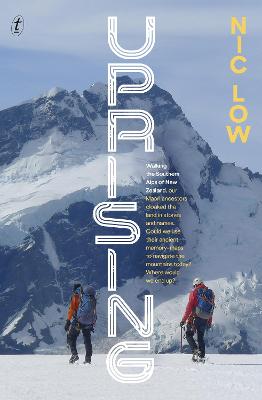
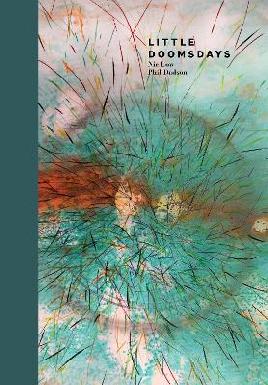
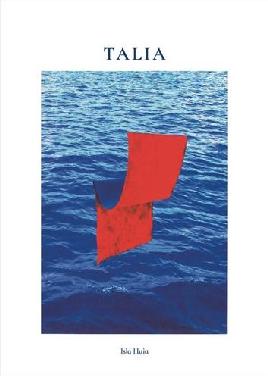
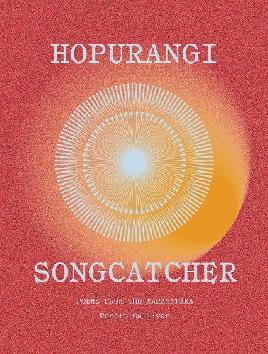
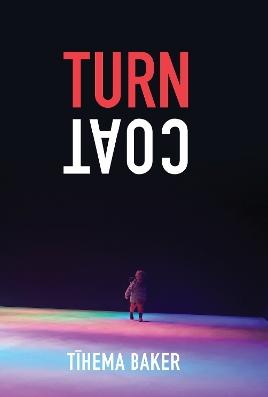


Add a comment to: Māori in the City: WORD Christchurch 2024